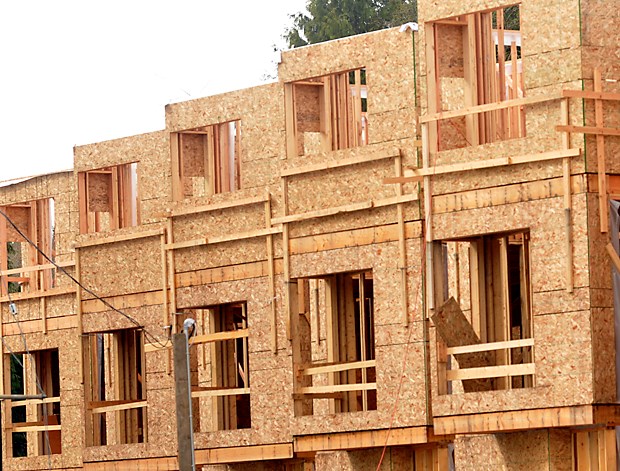Housing affordability was a major theme in the 2017 federal budget, which sees Ottawa return to investment in housing for the first time in 25 years.
The budget, released Wednesday, puts up $11.2 billion over 11 years to “build, renew and repair Canada’s stock of affordable housing,” according to the government.
Line items include a new $5-billion national housing fund to address critical housing issues, $225 million for housing support for indigenous people living off-reserve and $202 million to make more federal land available for affordable housing.
“Certainly, this is the federal government getting back into housing in a big way,” said Burnaby North-Seymour Liberal MP Terry Beech, noting the benefits will be felt across the economy.
“It’s also going to allow people to afford to live where they work, which is going to help with traffic, which is another major concern on the North Shore.”
But the details of how and where the money will be spent won’t be spelled out until the feds roll out their national housing strategy in 2018.
Beech couldn’t say whether it might include redevelopment of federal lands like the CMHC-owned Blair Rifle Range in North Vancouver. He has, however, been in meetings with MLAs, local council members and non-profits “to figure out the best places to target our investments.”
“These groups will now have a lot to work with and it’s going to be a matter of prioritizing,” he said.
Kishone Roy, CEO of the BC Non-Profit Housing Association, called the federal housing announcement, “some of the most important news in decades for British Columbians.”
The Conservative government under Brian Mulroney stopped offering tax incentives for developers to provide rental housing in 1983, largely cutting off the supply of new units. The Liberal government under Jean Chretien similarly halted funding for social housing in the early 1990s.
But Don Peters, chairman of the North Shore Community Resources’ community housing action committee, said it was an “enormous disappointment” to see that funding doesn’t kick in until later years of the budget.
“We don’t understand why the delay, because the need is now. The need was now yesterday and the need was now 30 years ago while the Liberals were haranguing the Tories all those years for a national housing plan,” he said, adding that those dollars seem cynically tied to the 2019 federal election.
“It’s all well and good for the government to come around to a national housing strategy but I don’t see any urgency in this whatsoever and I don’t see any hope in it for young families and poor people at all - not for a long time. I think we’re going to see the same old misery, even here on the North Shore, that we’ve been experiencing for the last number of years,” he said.
The budget also earmarked 40 per cent of the costs for Phase 2 of the TransLink Mayors’ Council vision for expansion of the Metro Vancouver transit system, which includes 10-minute SeaBus service all day and more North Shore bus service, as well as the Broadway subway line in Vancouver and LRT in Surrey.
City of North Vancouver Mayor Darrell Mussatto welcomed the cash but muted his optimism.
“The challenge that we’re going to have now is going to be with the province,” he said, noting the province will only put up one-third of the cost.
“That could very well be an election issue. That leaves 27 per cent on the table for the municipalities” he said. “We’re going to need a new source of funds. There’s no way we can just take that from our taxpayers.”
Other big ticket items in the plan include $7 billion to create 40,000 new subsidized childcare spaces and $5 billion for mental health care and homecare.
Deficit hawks, like the Canadian Taxpayers’ Federation, were quick to call out the budget’s $28.5 billion deficit spending in the next year, with no plans to return to a balanced budget in the near future. It will bring Canada’s debt to $756 billion by 2022 and result in $143 billion in interest payments over the next five years, the taxpayers’ group pointed out.
That’s something spending now should help correct as it grows the economy, said North Vancouver Liberal MP Jonathan Wilkinson.
“Over time, the focus is on making investments in infrastructure and in innovation to actually drive economic growth going forward, so that we actually have an economy that’s sufficiently productive that we are going to drive ourselves towards a balanced budget,” he said. “That’s not in the next couple years but it is definitely something that we are going to be looking to as part of the economic strategy growing forward.”



